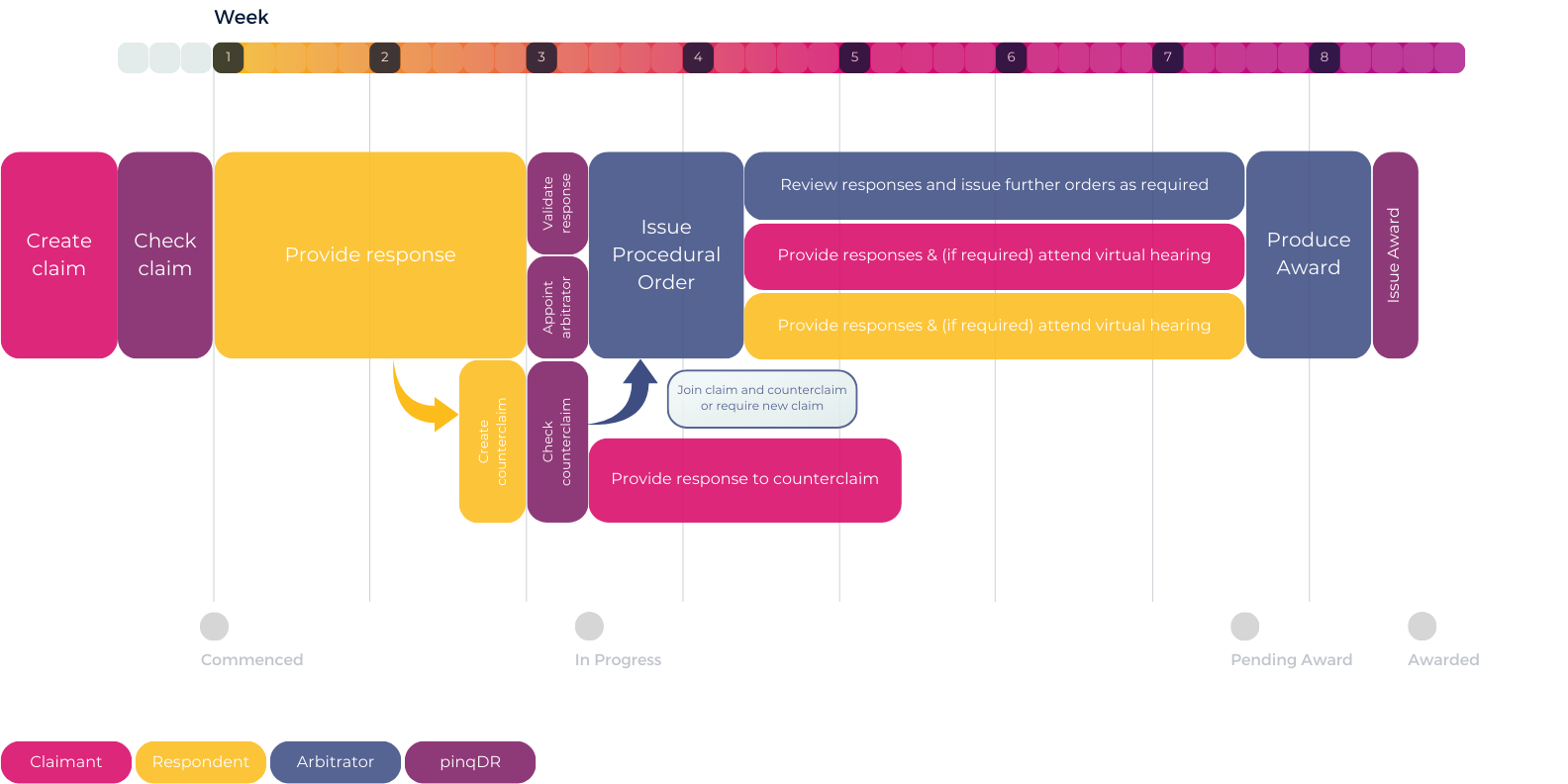
Guy Pendell
|25 October 2023
Creating pinqDR’s (arbitration) Rules
As an online dispute resolution platform offering quick and efficient binding dispute resolution, as well as a great process, pinqDR needs a set of rules that apply to claims made on the platform.
The basics
pinqDR’s dispute resolution process is a form of arbitration.
Arbitration is an internationally recognised form of dispute resolution that produces an enforceable award, and is supported by courts all over the world.
It is very well suited for B2B disputes and it allows parties in different countries to choose a neutral form of dispute resolution that is not part of the local courts of either party.
By using arbitration parties get a process that is well established and has important safeguards to ensure a fair process is followed.
Courts support arbitration in two important ways, by recognising and enforcing arbitral awards just like court judgments and, in exceptional cases, where something has gone badly wrong to exercise limited supervisory powers. Those powers are rarely needed and rarely exercised.
There are, broadly, two types of arbitration:
One is where parties choose arbitration but don’t choose any particular rules to apply, known as ‘ad hoc’ arbitration. Where that happens there are certain statutory provisions that will then apply, but otherwise it is for the parties and the arbitrator to work out the procedure most suitable for the case.
The other is generally known as institutional arbitration. This is where parties choose a particular type of arbitration where there is already a set of rules that will apply to claims, and an organisation that exists to help with parts of the process (such as appointment of the arbitrator). pinqDR is a type of institutional arbitration but it is not like traditional forms that are often used for large value cases and can often take years to pursue. pinqDR is very different.
pinqDR’s Rules
pinqDR’s Rules were prepared taking into account established approaches to arbitration revised to reflect the innovative approach taken by pinqDR.
pinqDR established a legal advisory board (LAB) to provide input into the Rules. Members of LAB are experienced professionals with many years of experience of arbitration and dispute resolution systems.
The Rules take some innovative approaches to arbitration:
A single up front fee is paid by the Claimant at the point of commencing the Claim. In the majority of cases, this is the only fee that has to be paid in the arbitration.
The Claim and Response are all provided on platform, where parties can attach documents which get a unique reference number, saving parties and arbitrators time in assembling and referring to evidence.
Timescales are short but reasonable. A party responding to a claim (respondent) will have 10 working days to respond to the claim.
If a respondent has a counterclaim, that can be pursued by bringing a separate claim on the platform, and the payment of a separate fee. Where appropriate the two claims will be run together. This allows genuine counterclaims to be brought but discourages tactical counterclaims intended to stifle or delay legitimate claims progressing efficiently.
Once the Claim and and Response are filed, the arbitrator is then appointed (by pinqDR), who will immediately review the Claim and Response and all documents provided.
Rather than wait for the parties to work out what additional information needs to be provided to the arbitrator, a pinqDR arbitrator will take the initiative to identify the issues to be decided, and the additional information needed to decide the case. The arbitrator will also set the timescale for the parties to provide that additional information.
To avoid delay, and parties putting pressure on the arbitrator to extend time, once a timetable is set the arbitrator then has limited flexibility to adjust the timetable in order to keep the entire process to time. There is a failsafe that if an adjustment of more than 48 hours is requested, pinqDR’s prior approval is needed.
The platform, designed to work alongside the Rules, helps parties stick to timetables with a tracker and notifications.
The arbitrator is required to issue an award within 25 working days from their appointment. That keeps the entire process to around 8 weeks.
The Fee paid by the Claimant is set based on the value of the Claim. That means parties know, with certainty, how much the process will cost from the outset. Find out more on the Fee at the pinqDR Pricing page.
There is no limitation on parties using lawyers to help with the process but it is not required.
The entire process offers a quick, reliable and cost effective alternative to traditional processes that take over one year to complete. Not only is that good for business, it empowers business by avoiding valuable time and resources being diverted to manage disputes.

pinqDR's Rules can be found here and should you wish to find out more about pinqDR, or our Rules please contact us.